Between 2012 and 2019, the field of hospital medicine experienced rapid growth, expanding by 50%.1 From 2019 to 2021 alone, there was an additional 10% increase, signaling continued growth over the next 10 to 15 years.2 As hospital medicine becomes an established career path for trainees, new opportunities are emerging in leadership, medical education, and quality and safety. This growing interest in a rapidly expanding field highlights the need for initiatives to better guide residents through the often nebulous and competitive process of becoming a hospitalist.
Although most residents actively seek mentorship in specific domains, there remains an unmet need for comprehensive, curated, longitudinal mentorship programs during early career development. To address this gap, the Career Hospitalist Advisement and Mentorship Program (CHAMP) was launched at Mount Sinai Hospital (MSH) in 2023.
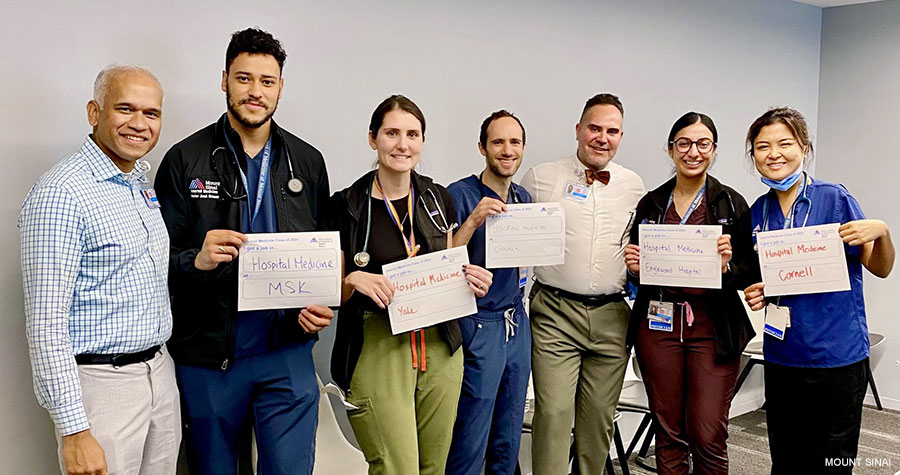
Mount Sinai Hospital graduating class of 2024 portraying their positions as hospitalists. L to R: Dr. Adrian Majid, Dr. Marlon Brewer, Dr. Mary Shimkus, Dr. Mitchell Gronowitz, Dr. Eric Barna, Dr. Benita Glamour, and Dr. Lodoe Sangmo.
What is CHAMP?
CHAMP uses a four-phase approach to guide residents through the process of entering the field of hospital medicine.
In the first phase, each PGY-2 resident is paired with a faculty advisor who aligns with their interests and helps establish career goals, such as medical education, quality improvement, and healthcare leadership. Throughout the remaining phases, the assigned career advisor continues to serve as a source of support, checking in with the resident at least quarterly.
The second phase focuses on increasing residents’ exposure to hospital medicine, primarily through a hospitalist elective rotation in which residents are given the opportunity to function as junior attendings and supervise advanced practice practitioners (APPs). Residents lead interdisciplinary rounds, attend departmental meetings, and guide decisions regarding patient management. They receive direct mentorship from their supervising hospitalist and didactic instruction on topics foundational to hospital medicine. This is supplemented by direct observation of case management and social work, as well as dedicated time learning billing and coding from the supervising hospitalist. Beyond the elective, residents attend the department of hospital medicine’s Grand Rounds, participate in residency career tracks (e.g., healthcare leadership, medical education), and collaborate with faculty on quality improvement initiatives. They are even invited to high-level leadership meetings to foster a deeper understanding of the hospitalist’s involvement in operations and planning.
The third phase provides structured guidance on securing a hospitalist position. Support includes an overview of the application timeline, curriculum vitae and cover letter review, connections with residency alumni, and developmental workshops on key topics such as interview preparation and practice. Residents also receive a comprehensive application guide, which is regularly updated by former residents and faculty.
The final phase focuses on longitudinal mentorship extending into the early career of the new hospitalist. This includes ongoing coaching for career development, assistance with scholarly projects, and collaboration across institutions. Additionally, didactic sessions focus on strategies for achieving success in a hospitalist role. The longitudinal phase is a core component, whether the trainee becomes a hospitalist at our institution or a different hospital system. Upon completing all four phases, participants are surveyed to provide feedback and improve the program for future residents.
Early implementation, expansion, and challenges
The development of CHAMP arose from a recognized gap in structured career guidance for internal medicine residents pursuing hospital medicine. This need was observed by CHAMP’s founder and director, Dr. Eric Barna, in his own transition from house staff to attending and his subsequent career as an academic hospitalist. Residents frequently sought informal guidance from hospitalist faculty on career options, job applications, and insights into the field. Having experienced both sides of this unstructured mentorship model, the importance of establishing a formal career advisement program became clear.
In 2022, this gap was addressed by designing a structured program to support residents interested in hospital medicine. After multiple brainstorming sessions, a phased approach to implementation was developed with a clear vision and concrete steps. A proposal was drafted for review by the division chief of hospital medicine and the internal medicine residency program director. Following their approval, the project team collaborated to establish goals, create tracking documents, and assemble a team of mentors. Two resident leaders from the program were recruited to support its development. CHAMP officially launched in the latter half of the 2023–2024 academic year with 17 enrollees and 10 mentors.
CHAMP operates without financial resources, driven entirely by the enthusiasm of house staff and hospitalist leaders. Two internal medicine residents serve as CHAMP leads each year, ensuring the program evolves to meet residents’ needs. These leads maintain updated resources and facilitate scholarship opportunities to enhance the program’s national visibility. A diverse group of 12 hospitalist mentors, representing various leadership roles within the institution, provides essential guidance and support. Their dedication remains integral to CHAMP’s sustainability and growth.
Following its initial success at Mount Sinai Hospital (MSH), CHAMP spread to Mount Sinai Morningside and Mount Sinai West (MSMW). The expansion was led by two associate program directors, Drs. Vasundhara Singh and Krystle Hernandez, who identified interested residents through surveys and feedback from residency leadership and chief residents. After compiling a list of potential candidates, the final cohort was integrated with CHAMP at MSH. Fourteen mentors were recruited and assigned based on mentees’ interests, ensuring balance across hospital sites. Early in the academic year, 18 third-year residents were assigned, while 12 second-year residents were assigned later. Introductory emails facilitated connections and outlined expectations. Although mentors and mentees are paired at their respective campuses, CHAMP events are offered to the entire group, fostering connections and networking across the health system.
The implementation of CHAMP encountered several challenges. One significant obstacle was defining the role of junior attendings during the hospitalist elective. Initially, residents struggled to assume attending-level responsibilities alongside their mentors without reverting to traditional resident duties. To address this, a structured handoff was introduced to outline responsibilities and expectations. Emphasis was placed on participating in multidisciplinary rounds with APPs and clarifying the principles of attending oversight.
Another challenge was determining the optimal timing for second- and third-year residents to participate in the elective. Third-year residents benefited from early exposure, while second-year residents performed better when scheduled in the second half of the year. Adjusting the timeline accordingly improved the learning experience. Additionally, certain didactic sessions, such as CV preparation and interview workshops, were found to be most effective earlier in the academic year to align with the job search process. By scheduling these sessions sooner, residents were better prepared for career opportunities.
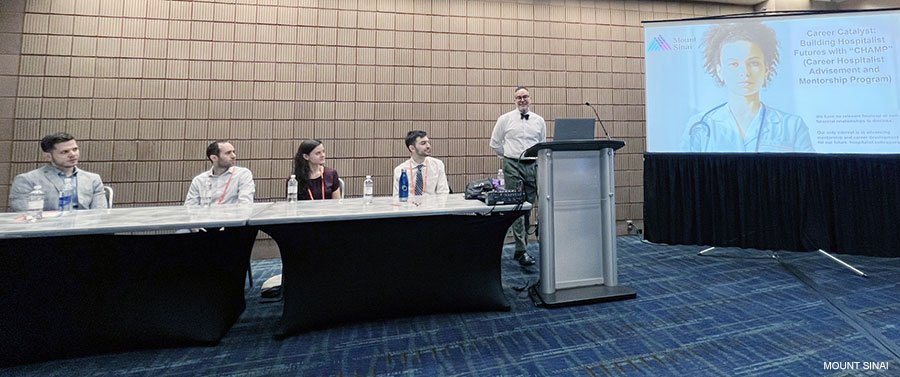
CHAMP workshop at Academic Internal Medicine Week 2025. L to R: Drs. Rex Hermansen, Mitchell Gronowitz, Yonina Kirsch, Benjamin Hack, and Eric Barna.
CHAMP’s successes
The value of CHAMP is best reflected in the testimonials and experiences of the alumni who completed the program over the last two years. Exit survey data reflects the benefits achieved by residents through a structured mentorship and career guidance program. All eight 2023-2024 CHAMP mentees responded, and 100% of this group felt satisfied with the support they received from the program. Alumni have already started to give back to CHAMP: they have provided advice directly to participants and program leadership and have led formal didactics for current enrollees.
The connection to mentorship was a critical success for the program. With a few exceptions, all participants felt that their mentor acted as a proficient guide leading up to and through the application process. Most had mentoring meetings quarterly or more frequently throughout the program.
Participants in the hospitalist elective felt it helped lay the foundation for attending-level skills beyond those gained in residency. They found the experience informative about the specific responsibilities of hospitalists, including collaborating with APPs. Additionally, they gained a better understanding of interdisciplinary rounds and increased confidence in writing attestation notes.
Another cornerstone of CHAMP is the hospitalist-specific didactic sessions, which received glowing feedback. The lectures and workshops focused on the application process clarified the most important aspects of CV building and interviews, which learners felt were crucial for their success in securing desirable positions. Later in the year, residents felt that the teaching they received regarding billing and documentation prepared them for the more practical aspects of hospital medicine, which are not taught elsewhere in the residency curriculum.
Perhaps most importantly, every resident enrolled in CHAMP secured a hospitalist position at an institution they were excited to join. This included several residents who were applying to hospital medicine as a transitional career with the intention of later pursuing a fellowship, who benefited from the skills and tools gained from CHAMP didactics regarding securing positions and providing excellent care as an early hospitalist. In 2024, CHAMP included 15 residents at MSH and 36 residents at MSMW. Of this larger group, all seven third-year residents at MSH and 21 at MSMW applied to and accepted hospitalist positions; one MSH third-year resident applied as a part-time hospitalist, and eight at MSMW identified as pre-fellowship hospitalists. At MSMW, career hospitalists represented a prodigious 16% of the graduating class, reflecting both the impact and importance of an initiative such as CHAMP.
Insights from CHAMP
One of the key lessons learned from the CHAMP project is the value of providing residents with structured support in areas beyond traditional medical education. Knowledge of the job application process, documentation, billing, and coding is crucial for preparing residents for their transition to attending roles in hospital medicine. Additionally, facilitating mentorship and professional connections among residents and faculty has proven to be instrumental in career development and long-term success.
For other programs considering a similar initiative, it is crucial to identify a core group within the internal medicine residency leadership and the hospital medicine department to spearhead the project. Engaging attending physicians who are willing to contribute through lectures, presentations, and mentorship will be necessary for the program’s success. Selecting residents to serve as program leaders is also key, as it both aids in organization and provides leadership opportunities. Furthermore, involving newer faculty members in the process ensures program continuity, incorporates diverse perspectives across different career stages, and allows CHAMP to be sustained and expanded.
Next steps for the program
We plan to scale the initiative further across all hospital sites within the Mount Sinai Health System, ensuring broader access to its benefits. Additionally, multiple university programs in New York and beyond are planning or considering the implementation of CHAMP, demonstrating its growing impact and potential for wider adoption.
As part of its continued evolution, CHAMP representatives led a workshop at the Academic Internal Medicine Week 2025 to introduce the initiative to an even wider audience. As we expand, we aim to refine the program based on feedback, optimizing its effectiveness and addressing any challenges that arise. By repeatedly improving CHAMP, we strive to develop a comprehensive and sustainable model that can be adapted by other institutions, ultimately enhancing patient care on a larger scale.
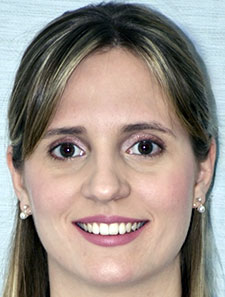
Dr. Velo
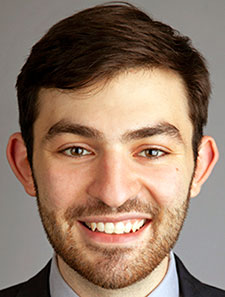
Dr. Hack
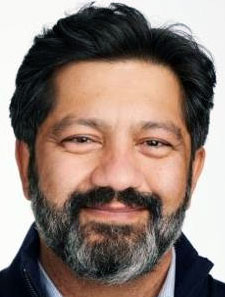
Dr. Hakimzada
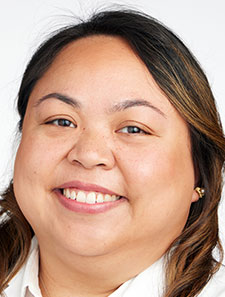
Dr. Hernandez
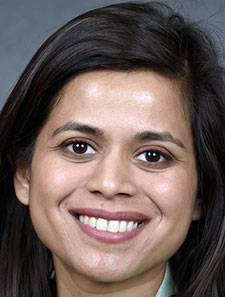
Dr. Singh
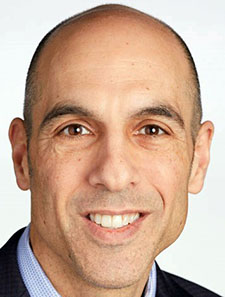
Dr. Dunn
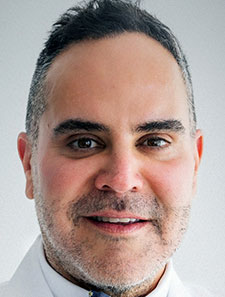
Dr. Barna
Dr. Velo is a second-year internal medicine resident at Mount Sinai Morningside West in New York. Dr. Hack is a third-year internal medicine resident at Mount Sinai Hospital in New York and will be starting as an attending in the division of hospital medicine at Mount Sinai Morningside in New York this summer. Dr. Hakimzada is a hospitalist in the division of hospital medicine at the Mount Sinai Health System and an assistant professor of medicine at the Icahn School of Medicine at Mount Sinai in New York. Dr. Hernandez is a hospitalist in the division of hospital medicine at the Mount Sinai Health System and an assistant professor of medicine at the Icahn School of Medicine at Mount Sinai in New York. Dr. Singh is a hospitalist, associate professor of medicine and medical education, and associate program director for the internal medicine residency program at Mount Sinai Morningside/West in New York, and she directs medical student electives at the Icahn School of Medicine at Mount Sinai in New York. Dr. Dunn is a professor of medicine and the chief of the division of hospital medicine for the Mount Sinai Health System in New York. He is also chair of the American College of Physicians’ board of regents and a member of SHM’s board of directors. Dr. Barna is a professor of internal medicine and medical education in the division of hospital medicine at the Mount Sinai Medical Center, director of education for the division of hospital medicine, director of education for Mount Sinai International, associate program director for the internal medicine residency, director of the hospitalist career advisement program, and the clerkship director for the acting internship for the Icahn School of Medicine at Mount Sinai, all in New York.
Key Takeaways
- Addressing the growing need for hospitalist mentorship: With hospital medicine rapidly expanding, many residents face challenges in navigating career opportunities. CHAMP provides structured, longitudinal mentorship to guide residents in professional growth and career readiness.
- Four-phase approach: CHAMP’s structured model includes career goal setting, hands-on hospitalist elective experience, application preparation, and ongoing mentorship beyond residency. This approach ensures that residents receive the necessary support at each stage of their career transition.
- Measurable impact and success: Feedback from participants highlights the program’s effectiveness, with 100% of surveyed mentees expressing satisfaction. CHAMP has successfully helped residents secure hospitalist positions and provided them with critical skills in billing, documentation, and interdisciplinary collaboration.
- Scalability and future expansion: After its initial success at Mount Sinai Hospital, CHAMP has expanded to other Mount Sinai campuses and is being considered for implementation at other institutions. Future goals include further scaling the program and presenting its model at national conferences to share best practices in hospitalist mentorship.
References
- Lapps J, et al. Growth trends of the adult hospitalist workforce between 2012 and 2019. J Hosp Med. 2022;17(11):888-892. https://doi.org/10.1002/jhm.12954.
- Howell E. Hospital Medicine Now and in the Future: Ad Astra Per Aspera. The Hospitalist. 2024. https://www.thehospitalist.org/hospitalist/article/38175/leadership/hospital-medicine-now-and-in-the-future-ad-astra-per-aspera/